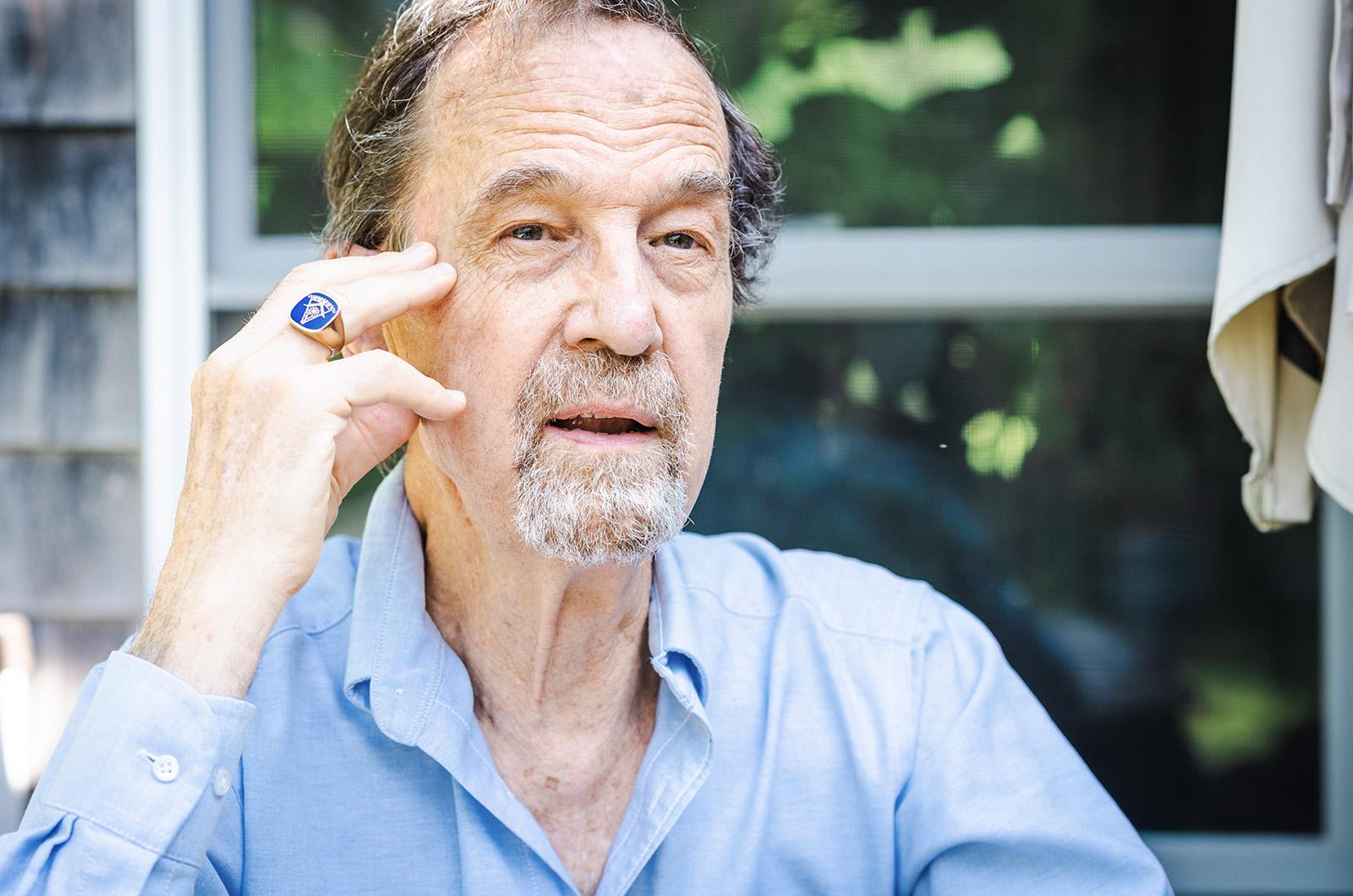At 11:30 p.m. on Wednesday, Edgartown resident and linguist Bruce Nevin completed his monthly report on the phonology of the Achumawi language, spoken by a tribe located around the Pit River in northeast California.
After studying the language for 50 years, Mr. Nevin had made an exciting discovery: for all that time, he had been wrong about a sound. Seated on his porch the morning after, Mr. Nevin described the error with a gleam in his eye.
“Very early on, I settled on the pronunciation of a word, Ma-Tik-Ja,” he explained. But the k in that phrase, he recently discovered, is not pronounced as a k, but rather as a less common sound, a glottal stop.
For a researcher like Mr. Nevin, it is a detail that makes all the difference. The discovery is just another puzzle piece in his vast Achumawi language database, assembled through decades of interviews, research and linguistic work.
And now, thanks to a recent National Endowment for the Humanities grant, Mr. Nevin is working to bring that research back to the tribe, helping to preserve a language embattled after centuries of persecution.
“I have long had a sense that knowing another language would give you kind of another perspective on life, kind of like having two eyes for depth perception,” said Mr. Nevin, of his choice to study linguistics.
As an undergrad at Florida State University he became frustrated with his German curriculum, and enrolled in the University of Athens for true Greek language immersion. He didn’t know any Greek at the time, but tuition was just $100 a year.
Upon returning to the U.S., Mr. Nevin spent a summer studying linguistics at the University of Pennsylvania under Zellig Harris, a giant in the field and thesis advisor to Noam Chomsky (Mr. Nevin has great admiration for Mr. Harris, but doesn’t buy in to Mr. Chomsky’s linguistic theories).
Mr. Nevin continued at UPenn for his masters and when it came time to decide on a dissertation topic, he looked for a language radically different from European ones. With Achumawi, that is exactly what he got.
“All these little one-syllable pieces...are combined together closely in kind of a close-knit syntax,” he said, of the language’s character.
By knitting them together, he continued, “you could have a pretty complicated sentence in what’s all considered one word.”
When entering the field, Mr. Nevin had his work cut out for him.
“Earlier researchers...they all had trouble hearing the sounds and making the distinctions,” he said, requiring him to untangle their errors.
In addition, Mr. Nevin arrived during a time of political turmoil for the tribe.
“I’m lucky I didn’t get shot,” he said, recalling the tribe’s ongoing conflict with the U.S. government. In order to gain control of the land they had never ceded, he explained, the tribe took to a strategy of illegally cutting down trees, which provoked courtroom battles to settle their land titles. Those legal fights happened at the same time as conflicts were also simmering within the tribe.
“And then I arrived, totally green,” Mr. Nevin said. “I came in a car supplied to the university for the survey...and they thought I was a government agent.”
But despite those challenges, he was warmly accepted by tribal elders, some of the last fluent speakers of the Achumawi language, who became close friends.
Mr. Nevin spent thousands of hours in conversation with those elders, recording their language and stories. This week, he fondly recalled the many chats he had with a woman he came to know as Grandma Lila.
“It’s only in the last three years or so that I have really begun to understand the language,” Mr. Nevin said. One of his key insights was the realization that the language had its building blocks in the natural world.
After completing his dissertation on the Achumawi sound-system, Mr. Nevin departed from full-time study, but never fully left the project. As technology improved, so did his methods and he and fellow researchers transferred handwritten notes to a digital database of the sounds, grammar, vocabulary and stories under the umbrella of the Dynamic Language Infrastructure Documenting Endangered Languages program.
The database has become not merely an academic tool, Mr. Nevin said, but also a living part of Achumawi culture. After years of it being repressed to the point of near extinction, activists in the tribe now use the database to teach the language to children once again. One of those native activists is currently pursuing a PhD in Linguistics from UC Davis.
“They teach how to set up a language domain — one or more domains in the home,” Mr. Nevin said, explaining that these are areas in the home where only Achumawi is spoken. By putting enough of them together, he said, they hope to turn the homes into “language nests,” fostering fluency.
In addition to supporting education, the National Endowment grant will help other activists reach out to other tribal communities, such as the nearby Atsugewi, to start similar efforts.
Upon completion of the project, Mr. Nevin said he will to turn over the database to the tribe, a way of giving back for the trust he received from the elders. This could also serve as positive reconciliation relating to his own family history, he said. Mr. Nevin’s maternal great-grandfather, William C. West, traveled from the Vineyard to California in the gold rush, making money on land speculation.
“He was one of the only Vineyarders who came back with a poke of gold, my mother used to say.”
Recalling the genocidal century that followed for California’s native tribes, Mr. Nevin said he has been reckoning with his own family’s role in that time period.
“I never did this out of guilt,” he said. “But I wonder, is my great grandfather looking back on this in some way?”







Comments (3)
Comments
Comment policy »